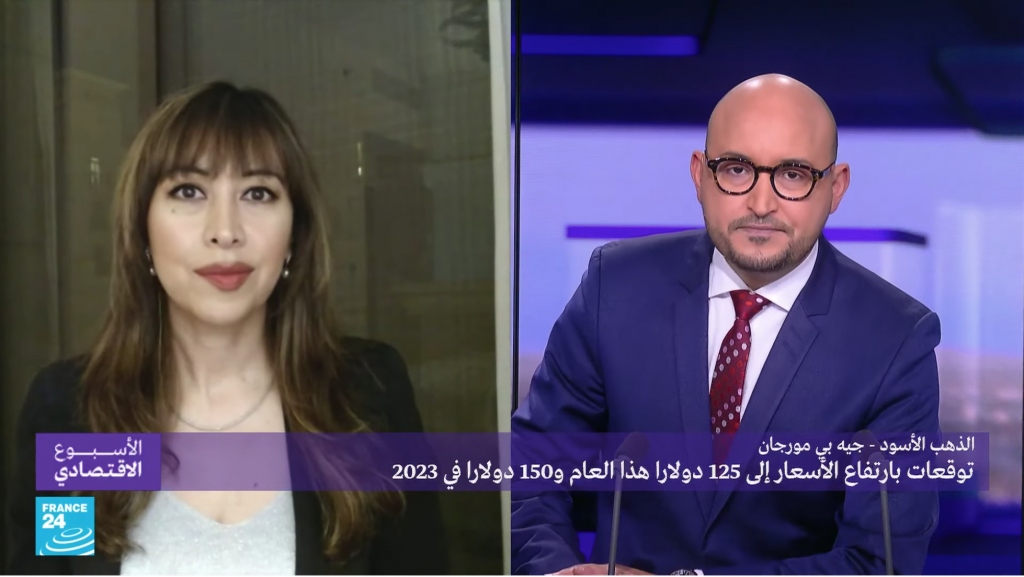In this interview with Khalid Karaoui from France24 Arabic, Dr Carole Nakhle, CEO of Crystol Energy, discusses the drivers behind the recent rise in oil prices and the implications on the economy. She is joined by Abdulaziz Al-Moqbel, a specialist in energy and economics, and Hassan Al-Qabi, Professor of Political Economy and International Relations.
The recent rise in oil prices had been previously forecasted to take place by the end of 2021. However, Omicron came in to derail the rise due to its unknown consequences on human health and, therefore, the possible reaction from major economies. As time passed by, Omicron turned out to be less harmful than expected which kept off stringent restrictions on mobility and travel by governments, particularly in developed economies. To this extent, oil demand growth momentum was restored and prices began to rise again consequently.
Commenting on the gas crisis in Europe, Dr Nakhle says that Europe has entered the winter season with higher-than-average gas prices which extended up to this date. The situation is expected to cool down since high prices are the cure for high prices. High prices in Europe are attracting additional supplies outside of the continent, namely from the US and Norway. Russia is accused of deliberately restricting gas supplies in Europe for geopolitical gains.
Oil importing countries will suffer from the rise in oil prices, especially that most of them are yet to recover from the scars induced by the Covid-19 pandemic. The current picture is complicated as it results in a big divide between economies. On one side, we have developed economies, such as the US and Europe, that have high vaccination rates and were able to support their economies through substantial stimulus packages and have mostly reached pre-pandemic output. On the other side, we have less developed economies that were already in weak positions before Covid-19 hit and are currently struggling to reach pre-pandemic output. Higher import bills, particularly energy, are likely to choke off a healthy economic recovery in such countries.
The US Federal Reserve announced that it will gradually increase interest rates in 2022 over 4 stages. Some economists argue that the decision has been late and that inflation has begun to spiral out of control. So far, the market reaction has been positive as they already factored in a possible increase in interest rates combined with a trust that the central bank will get things under control.
Dr Nakhle finally concludes that we should expect an environment of high taxation as government budgets are tight and are pushing towards a green agenda.
Watch the discussion (in Arabic)
Related Analysis
“European gas crunch: Calm before the storm?“, Dr Carole Nakhle, Dec 2021
“Oil markets: What crisis?“, Dr Carole Nakhle, Nov 2021
“An Energy Crisis Like No Other“, Lord Howell, Oct 2021
Related Comments
“Major risks for energy markets in 2022“, Dr Carole Nakhke, Dec 2021









